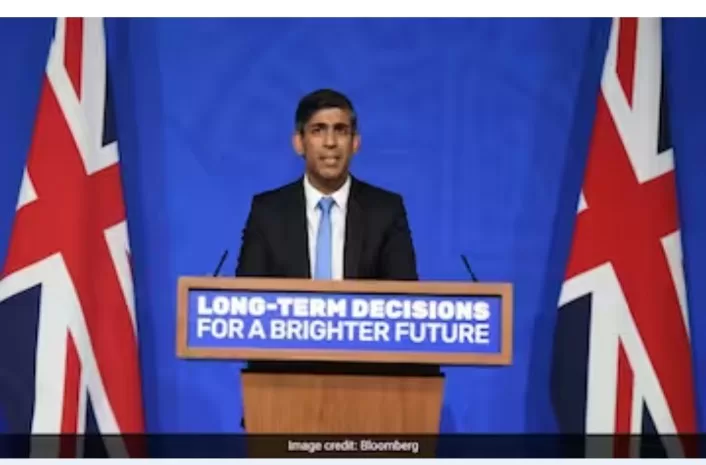As the curtain rises on the annual Conservative Party conference in Manchester, Prime Minister Rishi Sunak finds himself caught in a storm of political discord within his Cabinet. The contentious issue at hand is the United Kingdom’s membership in the European Convention on Human Rights (ECHR), a treaty that has been in place since 1951 and has recently been a source of contention.
Levelling Up Secretary Michael Gove and Business Secretary Kemi Badenooch, both influential figures within the Conservative Party, have voiced their belief that the UK’s affiliation with the ECHR should be open for discussion. This call for reconsideration comes in light of claims by some Tories that the ECHR hinders the government’s ability to deport asylum seekers to Rwanda. Notably, Home Secretary Suella Braverman has long advocated for the UK’s withdrawal from the convention.
Rishi Sunak has made stemming the flow of small boats carrying asylum-seekers from France a pivotal aspect of his political agenda, and deporting these arrivals to Rwanda stands as a central pillar of this strategy. However, the Strasbourg court, responsible for overseeing the ECHR, has intervened to halt these efforts. Concurrently, the British Supreme Court is poised to make a crucial ruling on the legality of this plan before the year’s end.
Although Sunak’s team maintains confidence in prevailing in the British legal arena, the possibility of failure looms large. This would inevitably increase the pressure on the Prime Minister to consider an exit from the ECHR. In the words of Michael Gove, “The UK should keep every option open.”
This emerging rift is of seismic significance, given the UK’s historical involvement in the drafting and signing of the ECHR in 1951. While not directly administered by the European Union, the ECHR has become a focal point for Brexit supporters, who perceive it as a conduit for foreign influence over Britain’s immigration policy. Such a withdrawal would also invite scrutiny of whether the UK is relinquishing its global leadership.
Throughout its seven-decade history, only two nations have withdrawn from the ECHR: Greece, during a period of military rule, later rejoining, and Vladimir Putin’s Russia. The treaty’s fundamental principles encompass a range of issues, including free elections, property rights, and access to education.
Foreign Secretary James Cleverly expressed a differing viewpoint, stating, “I don’t believe that leaving the ECHR is a necessity to achieve our goals of protecting our borders.”
Furthermore, Sunak would face immediate complexities should he proceed with the UK’s exit from the convention, as the ECHR is integral to the peace treaty that concluded the long-standing sectarian violence in Northern Ireland in 1998. Security Minister Tom Tugendhat has posed the crucial question: “What alternative does this present for the Good Friday Agreement?”
The unfolding dynamics within the British Cabinet on this matter will undoubtedly shape the future political landscape and could have far-reaching consequences for the UK’s international relationships and legal commitments.
By Bloomberg







